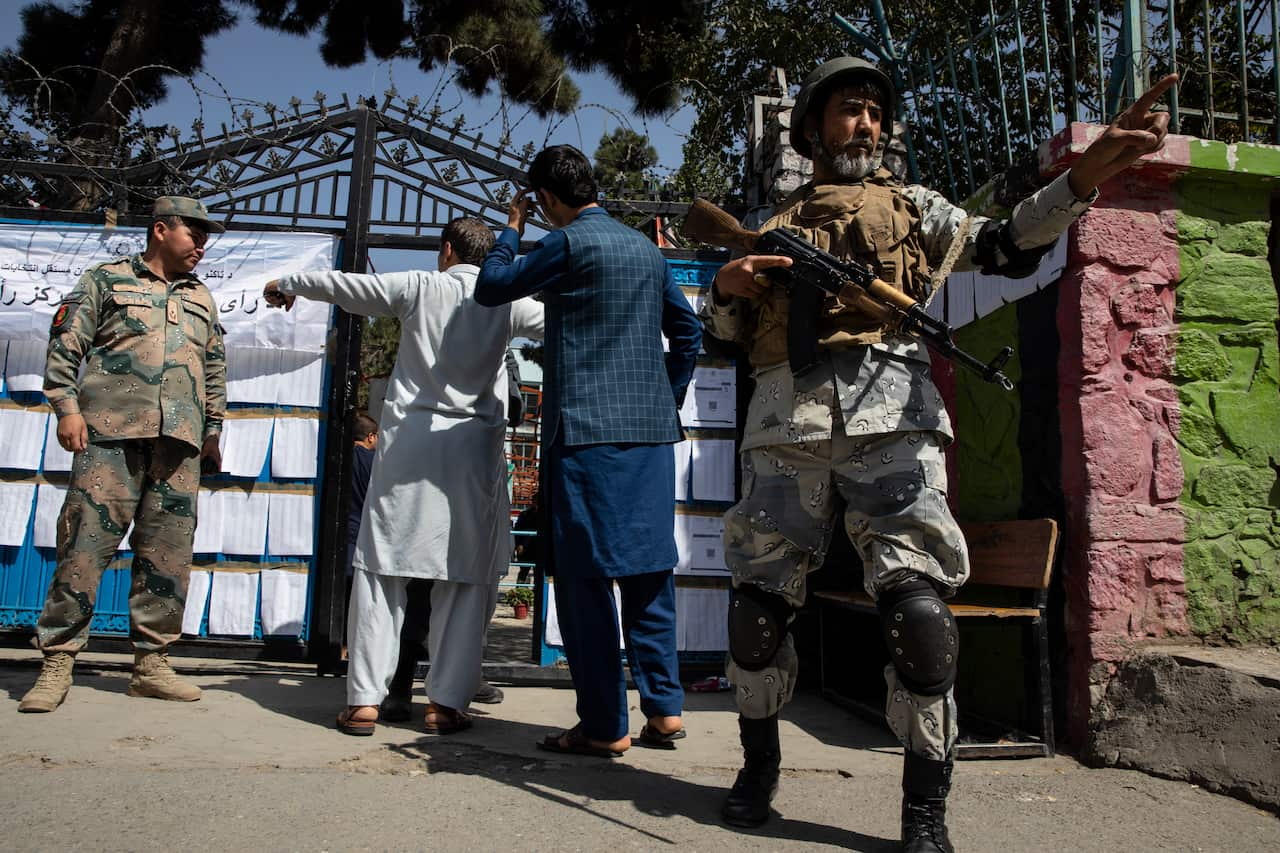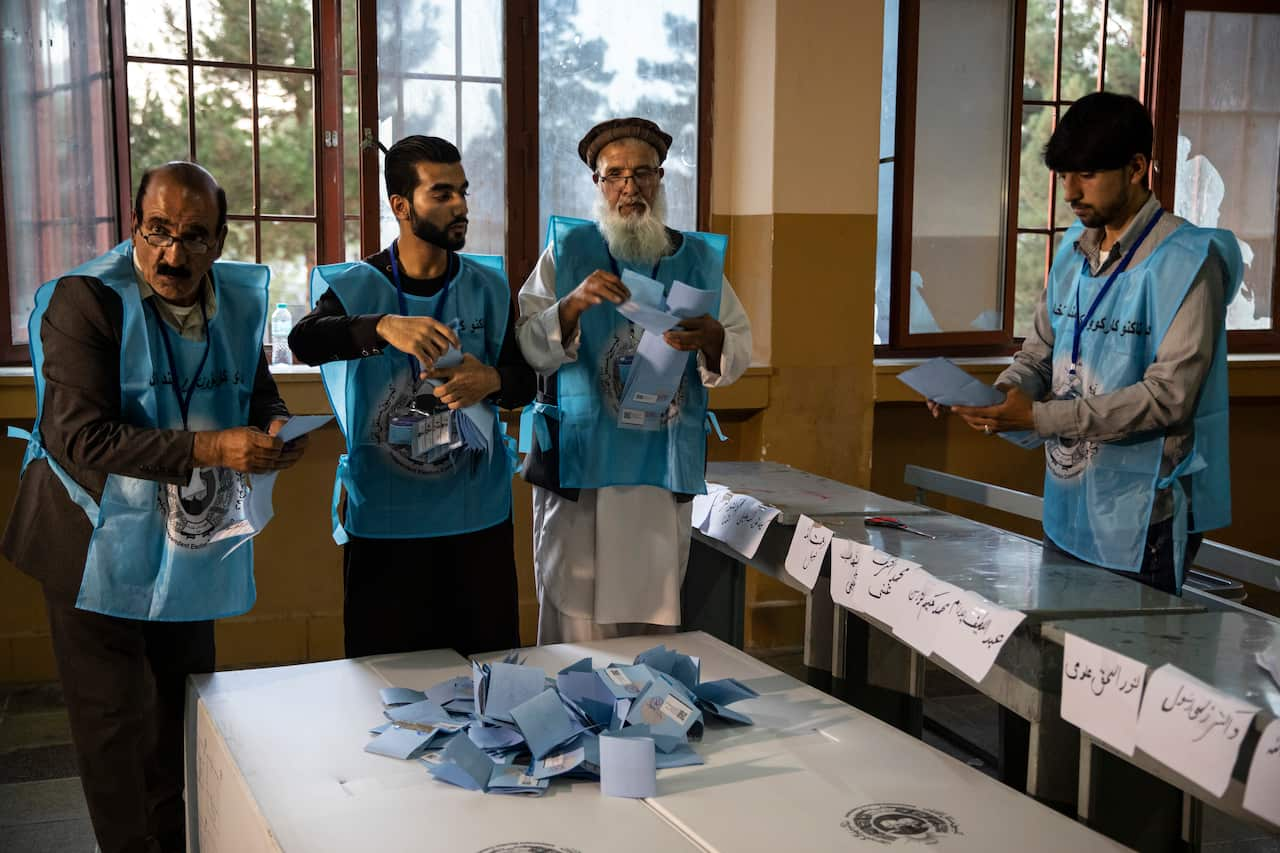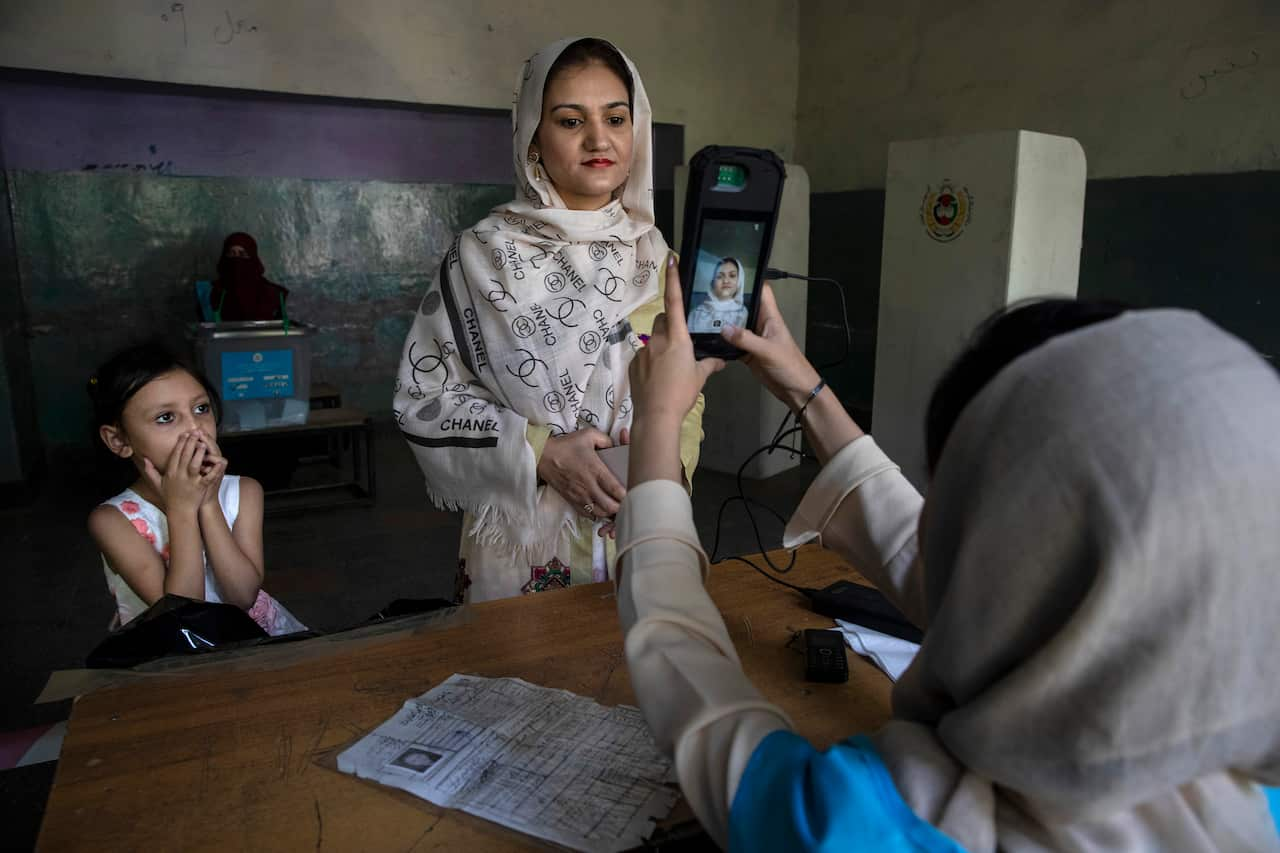Low voter turnout has been reported in Afghanistan's presidential election as polls closed amid Taliban threats and under tight security.
At one polling station in the centre of the capital Kabul, only 21 per cent of voters registered to cast their ballots.
The election commission's extension of voting by two hours to 5pm local time on Saturday did little to increase turnout.

The low participation was confirmed by local representatives in at least half of Afghanistan's provinces, polling staff and observers.
Poll workers said the main reason for the low turnout was the lack of security.
At least three people were killed and 44 others were injured in election-related explosions or rocket attacks across several provinces and in the capital Kabul.
A third of polling stations remained closed due to security threats in Taliban-controlled areas and other places where the insurgent militia wields influence.

Some 72,000 members of the security forces were deployed to provide security for the election.
Eighteen candidates were on the ballot; four pulled out before election day.
But only incumbent President Ashraf Ghani and chief executive Abdullah Abdullah have a real chance of winning.
According to the election commission, preliminary results are scheduled to be announced on 19 October.

Political analyst Ahmad Saeedi predicted that not more than a million people would vote, compared to polls in 2014, when almost 8 million people turned out.
TV station Tolo News quoted unofficial figures by the election commission, saying that fewer than 2 million people voted.
Women, in particular, appeared to have stayed at home, provincial councils said.
'Much cleaner'
In addition to security threats, turnout was hampered by scepticism about the electoral process.
Previous polls, including the 2014 presidential election, were undermined by widespread allegations of vote-buying, ballot stuffing and fraud.
And the election campaign itself seemed almost moribund during the two months of campaigning because many thought the poll - already twice delayed while the US and the Taliban tried to negotiate a troop withdrawal deal - would be pushed back yet again.
It was only after US President Donald Trump scuppered those talks on 7 September that candidates really believed the election would take place, leaving little time for them to campaign.
Turnout was low because of security threats and "the weak campaigning of the candidates" political analyst and Kabul academic Atta Noori told AFP.
"It is not because they were not interested to vote," he said.
Independent political analyst Haroun Mir said that even with a low turnout, the election could be considered a victory for the democratic process because it was "much cleaner" than previous polls.
Election officials have said the result would be the purest yet, with equipment such as biometric fingerprint readers and better training for poll workers ensuring the vote was fair.
Results are not expected until 19 October 19.
Candidates need more than 50 per cent of the vote to be declared outright winner, or else the top two will head for the second round in November.

